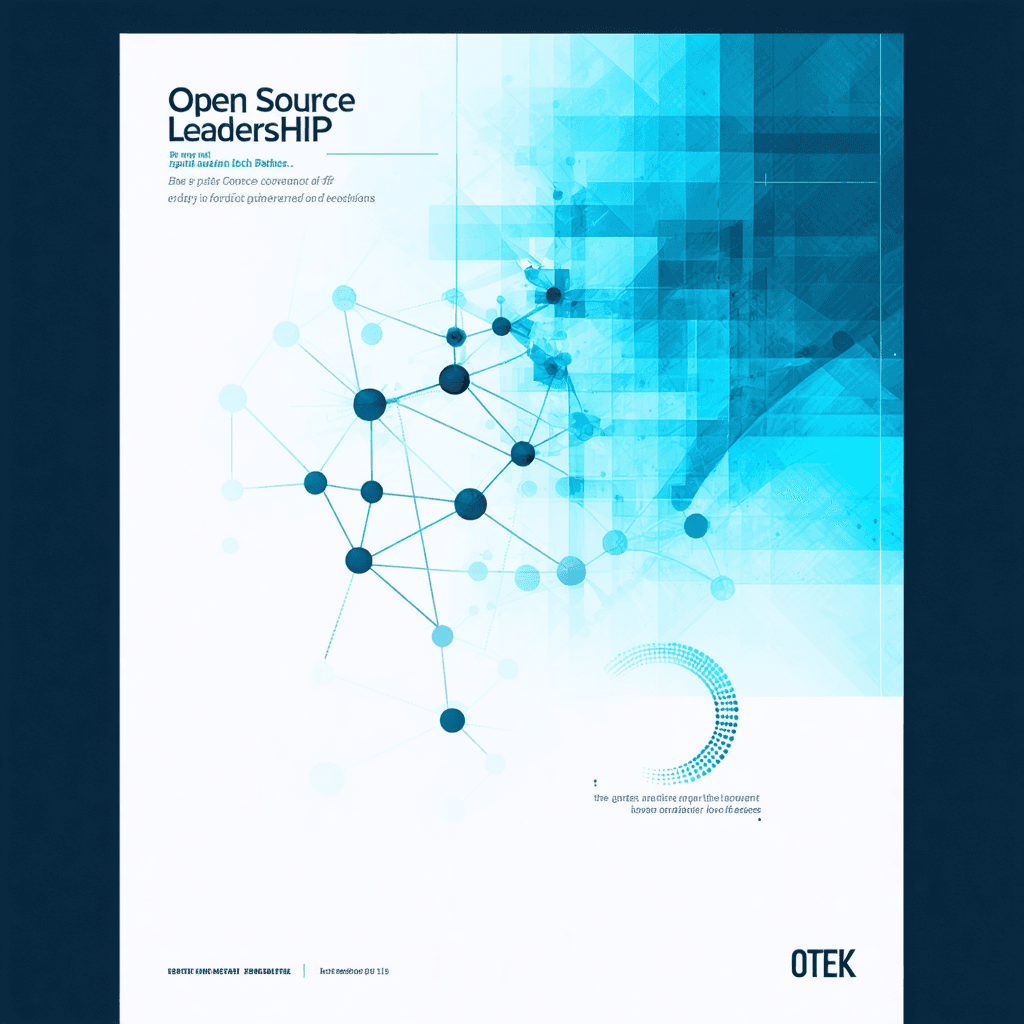Mastering Open Source Leadership: 7 Game-Changing Governance Strategies That Top Projects Use
In today's digital landscape, successful open-source projects aren't just about great code – they're about exceptional leadership and governance. The most influential open-source initiatives have proven that proper governance is the backbone of sustainable community growth and project longevity. Let's explore seven battle-tested strategies that leading open-source projects employ to maintain their competitive edge and foster healthy, productive communities.
1. Establish Clear Decision-Making Frameworks
Successful open-source projects implement transparent and well-documented decision-making processes. The Apache Software Foundation's consensus-based decision-making model exemplifies this approach, using the familiar "+1, 0, -1" voting system to ensure all voices are heard while maintaining forward momentum.
Key implementation steps:
- Document your governance model in easily accessible locations
- Define clear voting procedures and requirements
- Establish quorum requirements for major decisions
- Create escalation paths for conflict resolution
2. Foster Inclusive Leadership Structures
Top projects recognize that diverse leadership leads to better outcomes. The Linux Foundation's approach to technical oversight committees (TOCs) demonstrates how multiple perspectives can strengthen project direction and sustainability.
Essential elements include:
- Rotating leadership positions
- Mentorship programs for emerging leaders
- Clear paths for advancement within the project
- Geographic and demographic diversity in leadership roles
3. Implement Transparent Communication Channels
Effective open-source governance relies on open and accessible communication. Leading projects maintain multiple channels for different types of interactions:
- Public mailing lists for major discussions
- Real-time chat platforms for quick collaboration
- Regular community calls and virtual meetups
- Documented decision archives
- Public roadmap discussions
4. Define Clear Contribution Pathways
Successful projects make it easy for new contributors to understand how they can participate and grow within the community. The Kubernetes project sets a gold standard with its structured contribution ladder:
- Detailed contributor guidelines
- Well-defined roles and responsibilities
- Clear promotion criteria
- Documented review processes
- Mentor matching programs
5. Establish Quality Control Mechanisms
Quality assurance is non-negotiable in successful open-source projects. Leading initiatives implement robust systems to maintain code and documentation standards:
- Automated testing requirements
- Code review protocols
- Documentation standards
- Security review processes
- Performance benchmarking criteria
6. Create Sustainable Resource Management
Long-term success requires careful management of both technical and human resources. Top projects excel at:
- Budget allocation and transparency
- Infrastructure management
- Community member burnout prevention
- Succession planning
- Knowledge transfer protocols
7. Build Strategic Partnership Programs
Leading open-source projects develop strong ecosystem relationships that support their long-term sustainability:
- Corporate sponsor programs
- Academic partnerships
- Cross-project collaborations
- Industry alliance frameworks
- Community outreach initiatives
Best Practices Implementation Guide
To effectively implement these strategies, consider the following practical steps:
Assessment Phase
- Evaluate current governance structures
- Identify gaps and improvement areas
- Benchmark against successful projects
- Survey community needs
Planning Phase
- Develop implementation roadmap
- Create documentation templates
- Establish success metrics
- Define resource requirements
Execution Phase
- Roll out changes incrementally
- Gather continuous feedback
- Adjust based on community response
- Monitor success metrics
The Impact of Effective Governance
When implemented properly, these governance strategies lead to:
- Increased contributor retention
- Higher quality contributions
- Faster decision-making
- Reduced community conflicts
- Improved project sustainability
- Greater adoption rates
- Stronger ecosystem partnerships
Common Implementation Challenges
While adopting these strategies, be prepared to address:
- Resistance to change from existing community members
- Initial overhead in documentation and process creation
- Balancing structure with flexibility
- Managing diverse stakeholder expectations
- Maintaining momentum during transition periods
Future Trends in Open Source Governance
Looking ahead, successful projects are already preparing for:
- AI-assisted governance tools
- Hybrid governance models
- Increased focus on sustainability metrics
- Enhanced security governance requirements
- Cross-project governance frameworks
Conclusion
Implementing effective governance strategies is crucial for open-source project success. By adopting these seven proven approaches, projects can build stronger communities, deliver better software, and ensure long-term sustainability. The key lies in thoughtful implementation, consistent execution, and continuous adaptation to community needs.
Ready to take your open-source leadership skills to the next level? Explore our comprehensive courses and resources at 01TEK. Our expert-led programs will help you implement these strategies effectively in your own projects. Visit 01TEK's Open Source Leadership Academy today and join a community of forward-thinking open-source leaders.
#opensource #leadership #projectgovernance #communitymanagement #softwareengineering #01TEK
Example is not the main thing in influencing other people; it’s the only thing.
Abraham Lincoln



